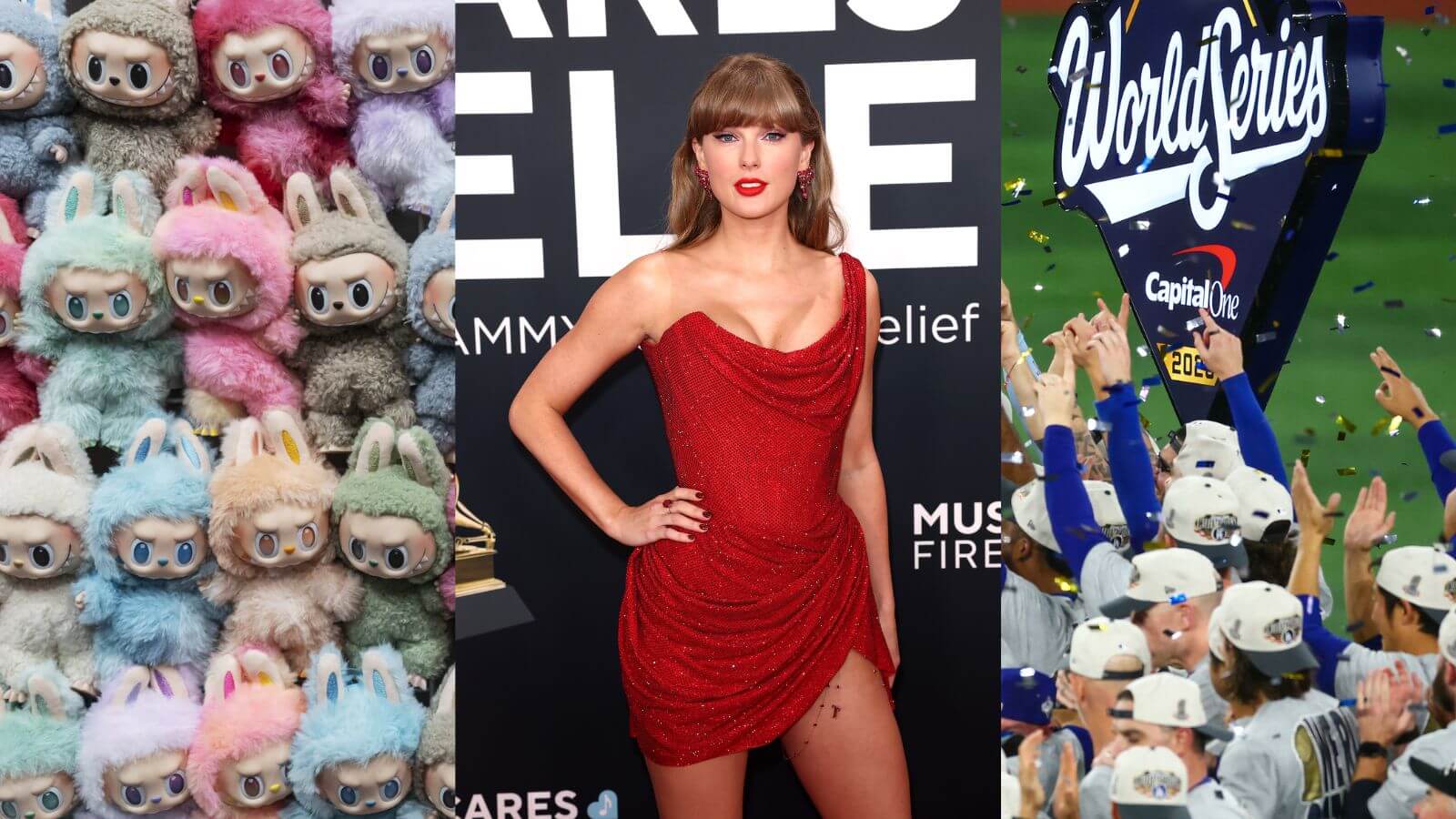How ‘Spiritually Israeli’ became a slur that isn’t really about Israel
The phrase is applied to the Dodgers World Series win, Taylor Swift and other non-Jewish phenomena

Just a few of the things dubbed “spiritually Israeli” — the hyperconsumerist toy fad Labubus, pop artist Taylor Swift and the L.A. Dodgers. Courtesy of Getty Images
Once upon a time — which is to say, not recently — Israel had a reputation in the West as an underdog. This, combined with its gold-star management of its international image, a practice known as hasbara, led to a perception of the Jewish nation as a scrappy fighter that triumphed over its bullies, the Arab nations that flank each of its borders. Later, Israeli PR successfully marketed Tel Aviv as a gay mecca to prove its character as a progressive leader, and its success in technology to paint the country as the “Start-up Nation.”
Since Oct. 7, this has changed entirely. Now Israel, not its Arab neighbors, is widely portrayed as the bully. And this association goes so deep that posters online have begun to bring up Israel outside of any context relating to the war, international politics or anything Jewish. In the current parlance, “spiritually Israeli” has taken hold as a catch-all pejorative.
Take, for example, the World Series. The Los Angeles Dodgers — if you’re not a baseball fan, they just won the World Series — are, this year, the spendiest team in the game, known for hoarding wealth and amassing the best players. Other sports impose salary caps to try to keep the playing field relatively equal and the games more compelling. Not baseball. (It does levy luxury taxes on teams that spend a lot — but, if you’re already paying your star player $700 million, you just pay the tax, too.)
Which means that the Dodgers’ win was not exactly widely celebrated outside of Los Angeles. “Never forget it’s fuck the Dodgers, fuck Israel and fuck ICE forever,” reads one popular tweet on the game. The Dodgers, as several posts put it, are “spiritually Israeli.” Yet another post referred to the team as the “Tel Aviv Dodgers.”
To be clear: The team has no Israelis. The posters don’t mean the team has a partnership with Tel Aviv, or that any of the players are Jewish. They partially mean the team is punching down. And they mostly mean it’s lame to support a team that seemed nearly guaranteed to win.
“Spiritually Israeli” and its ilk are far from the first anti-Israel slang to pop up in the past two years. Various pejoratives like “Isn’treal” and “Israhell” have been common for years, and gained traction after Oct. 7. Long before the “Hot Girls for Cuomo” and “Hot Girls for Zohran” battle arose in the New York City mayoral battle, there were influencers posting thirst traps captioned: “#freepalestine.” In short, Israel is becoming deeply uncool.
This is all, of course, just the internet. Israel still has the support of the vast majority of U.S. political leaders, for example, who probably don’t keep track of which influencer is posting what about Israel, much less what outfit they were wearing when they did so.
On the other hand, the internet is where much of culture is manufactured today. And however intangible they may be, language and slang do reveal social currents.
Meme encyclopedia Know Your Meme says “spiritually Israeli” is used to call things “culturally empty.” It’s possible to see this as a rebrand of “rootless cosmopolitanism,” an antisemitic idea used to condemn Jews as a corrupting influence on European society. And that is part of the term’s meaning. But really, in practice, it’s used to describe things that are extremely corporate, too big to fail.
Israel is no longer seen as the underdog. And support for Israel in mainstream arenas — politics, government, some media — is why it has become increasingly, well, unsexy to support the nation. Are you excited about your bank? Or your local Safeway? Just like it’s lame for Starbucks to be your favorite coffee shop instead of somewhere local, or it’s basic to love Taylor Swift instead of a niche musician, it has become cringe to love Israel.
But only among a certain crowd; the people using “spiritually Israeli” are, generally, cultivating an aesthetic of hipsterdom. In practice, though, most people love corporate things; that’s how they got so big. At least one major TikToker built her entire brand on being excited about drinking her daily Starbucks. And Taylor Swift is, of course, one of the most successful pop singers of our time. Israel doesn’t need to be cool to thrive.
So however “spiritually Israeli” it might be, people will continue to like what they like — even if it’s the L.A. Dodgers.

















